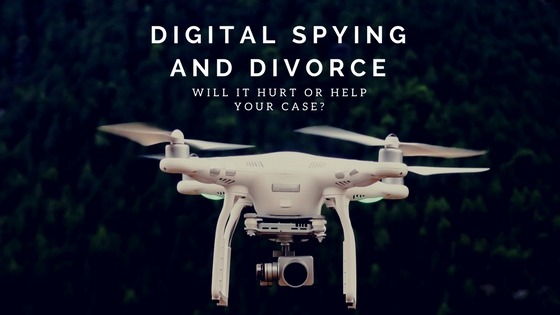No matter what the specific circumstances, going through a divorce is always a difficult situation. However, when there has been an issue of jealousy, possessiveness and mistrust during the course of the relationship, it can leave you even more emotionally drained. Some spouses who are going through a divorce may find it tempting to resort to spying or surveillance of their soon-to-be-ex. However, in Texas and other states, this is considered a crime. Even if you relied on spying methods to confirm suspicions that your spouse was cheating, it can work against you during your divorce and your ex can file a claim against you for invasion of privacy.
Ramifications of Spying
It can be frustrating when you suspect your spouse of cheating, especially when it leads to an impending divorce. If you have noticed your significant other spending inordinate amounts of time online, receiving phone calls and text messages at odd hours and spending money at strange places, it can be tempting to spy on them to catch them in the act.
However, some types of spying, and if it is done extensively, can result in certain consequences. The following are ramifications you can face:
- Receiving a fine
- Being made to pay punitive damages
- Receiving time in jail
When you are considering getting a divorce, it can be tempting to rely on spying or surveillance on your spouse because you may believe it can result in your favor. However, in reality, the court may not see it from your point of view and may award your spouse a larger share during the divorce proceedings. There are both state and federal laws that make it illegal to spy or surveil another person, even if it’s your spouse.
What Constitutes Illegal Spying?
The Federal Wiretapping and Electronic Surveillance Act exists to protect people from having their private information obtained by others through methods like hacking, which is illegal. It is also considered a federal offense to gain access to communications made or received by your spouse without their consent or without the approval of a court. An act such as installing a specific app on your spouse’s smartphone meant to spy on them without their knowledge or consent can also be considered illegal. Likewise, placing a tracking device on your spouse’s car would also be a form of illegal spying.
Additionally, during the divorce proceedings, the court would likely rule the evidence you gathered during the course of your spying and surveillance to be inadmissible because it was obtained through illegal means.
What Kind of Spying is Legal?
Of course, certain types of spying are legal. If your spouse previously gave you the ID for their smartphone or tablet and you used it to check their text messages when they left their device out in the open, it would be a legal form of spying. Another legal type of spying is if your spouse is using a computer and leaves it on and open for you to view. If you were to take a look at their email when it’s open, or if they were chatting with someone online, this would be perfectly legal spying.
In general, spying is a complex act that is not always worth it because it can land you in trouble. If you are going through a divorce, it is simply not worth attempting to take measures to spy on your former spouse. Instead, you should look to the future and hire a skilled Texas divorce attorney to handle your divorce case.
Call our law offices today at any of our convenient locations and get a free consultation.
Arlington (817) 522-4451
Denton (940) 222-4060
Dallas (972) 362-6848
Fort Worth (817) 764-1375
Cedar Hill (972) 338-9427
McKinney (469) 522-3688
Lewisville (972) 354-4605
You can also contact us online by using our quick contact form.











